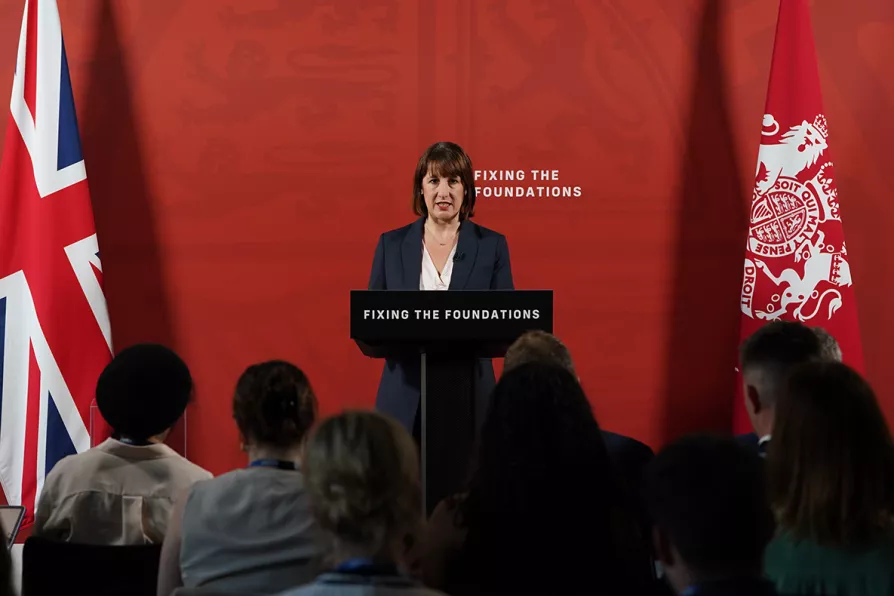
 Chancellor of the Exchequer Rachel Reeves during a press conference following her statement to the House of Commons on the findings of the Treasury audit into the state of the public finances, July 29, 2024
Chancellor of the Exchequer Rachel Reeves during a press conference following her statement to the House of Commons on the findings of the Treasury audit into the state of the public finances, July 29, 2024
RISHI SUNAK’S last boast was that the inflation rate that rose when he was chancellor of the Exchequer had begun to come down under his premiership.
Now Rachel Reeves has the task of explaining what she is going to do about the uncomfortable fact that inflation has begun to rise again and now stands at 2.3 per cent.
That every rise in the inflation rate is, in effect, a wage cut for workers — and anyone other than those who live by profits, rents or interest — is a basic fact of political life that almost all the media, the whole assembly of Establishment politicians and most especially whoever occupies the best office in the Treasury building, deny.
Thus when unions call for a new approach by the Labour government to keep inflation down and buttress their arguments with a direct call to tackle the scandal of high energy prices, they place a strong pointer to what could be a fresh approach by Labour and the beginnings of an economic strategy that tackles the structural factors which constantly impose on working people capitalism’s problems.
Energy prices are fixed by what the energy companies pretend are factors beyond human intervention and cite global energy prices as the determining factor in driving up the costs of energy to the consumer.
When we say this is so much hot air we should bear in mind that the energy price crisis in Europe is, in no small measure, the product of a self-mutilating strategy by the German government to break off its long-standing commercial arrangement with Russia for the supply of, by global market standards, cheap Russian energy.
Now the German police are looking for a couple of Ukrainian divers who, they allege, were involved in blowing up the pipeline delivering Russian gas to Germany.
At the time the entire media and all Nato politicians blamed the Russians for blowing up their own pipeline with barely a raised eyebrow that this is so counterintuitive that one might have easily speculated that well-trained dolphins were responsible.
One very positive outcome from a negotiated solution to the Ukraine war — which was being actively discussed when Boris Johnson went to Kiev with the express purpose of blowing up this initiative — would be that energy prices might come down.
What continues to baffle anyone who thinks at all deeply about this problem is why a country like Britain, which has substantial energy supplies in play, cannot decide for itself the prices which British consumers, domestic and industrial, might pay.
When the inevitable answer is returned, because the market in privately extracted and owned energy is subject to the “hidden hand of the market” the answer suggests itself.
Let the sector be publicly owned and the government’s hand in fixing prices be shown to operate in a transparent manner.
The train drivers’ union Aslef is well on the way to agreeing a deal that would end its long-running strike action over pay.
Train drivers are relatively well paid because of their willingness, as part of a highly organised and well-led union to act collectively to negotiate from a strong position.
Where the Labour government goes on pay shows how serious it is about a new approach. There are a whole raft of pay demands built up over recent years that need immediate attention and now, with inflation still on the rise, there will be a new urgency to next year’s pay negotiations.
No amount of Treasury-manufactured verbiage can hide the truth that the general level of workers’ pay is determined by the portions that are allocated to capital and to labour.
Profits or wages, Citizen Reeves.














